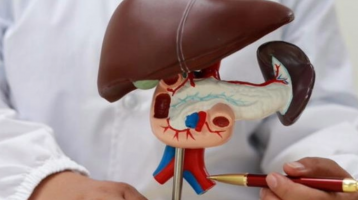Getting seven to eight hours of quality sleep every night is essential to physical, cognitive and emotional health. Unfortunately, millions of people suffer from sleep disorders that keep them from meeting this goal. Even if you do fall asleep fairly quickly, you may sleep restlessly or wake up in the middle of the night. Learning more about what happens when you don’t sleep can help you understand why treating a sleep disorder can be essential to your overall health.
What Happens When You Don’t Sleep

Physical Effects of Sleep Deprivation
In general, your immune system is weakened by insufficient sleep and will grow weaker the longer you go without sleep. This is because, in addition to antibodies, the immune system produces cytokines. These cytokines help the body fight off viruses and infections, but they also assist in helping you sleep. Once you begin to lose sleep, the level of cytokines in your body decreases and the immune system does not produce enough to make up for this deficiency. This is why people with sleep problems get sick faster and take longer to recover.
The respiratory system can also be affected by sleep loss. If you’re losing sleep because you keep waking up in the middle of the night, you may be experiencing sleep apnea. This is a condition in which the muscles in the throat relax, obstructing the airway and interfering with breathing. With sleep apnea, it only takes a few seconds for the brain to receive a signal that breathing has stopped, but it responds by forcing you awake and disrupting the sleep cycle. When this condition goes untreated, it can lead to serious lung problems and infections. It can be especially problematic for people who already have respiratory problems, such as asthma.
Sleep is also involved in weight control because it helps the body regulate the production of hormones related to appetite. When you do get enough sleep, the body is flooded with leptin, the hormone responsible for helping you to feel full. However, less leptin is produced when you don’t get enough sleep.
When you are awake for a long time, the body is flooded with another hormone called ghrelin, which is responsible for inducing hunger cravings. Ghrelin production goes hand-in-hand with insufficient sleep because its purpose is to ensure that the body receives enough fuel, and thus, needed energy. However, when you’re overly tired and less likely to exercise, it’s difficult to burn those extra calories, which can lead to weight gain. This is one of the ways insomnia can contribute to weight gain and obesity.
Cognitive and Emotional Effects of Sleep Deprivation
One of the most common ways that a loss of sleep affects emotional health is by throwing your mood off balance. Research has found that people who experience insomnia and other sleep disorders lose their tempers more quickly and feel angry more frequently. People who suffer from depression or anxiety also experience depressive episodes more frequently when they’re unable to sleep well.
Sleep difficulties can also lead to cognitive problems, such as difficulty learning and memory loss. During sleep, the central nervous system relays messages between the brain and the rest of the body. This helps the brain process events of the day and ensure they are stored in long-term memory. However, this process is disrupted when you don’t get enough sleep. This is why you may have difficulty recalling facts when you feel overly tired.
Getting the “Right” Amount of Sleep Each Night
Getting too much sleep can be just as bad as getting too little sleep. In one study, women who frequently got less than five hours of sleep or more than nine hours were estimated to have aged up to two years prematurely. The researchers found that their cognitive functioning also advanced much more quickly, equaling the cognitive decline experienced by women up to two years older who had normal sleep cycles.
This may have something to do with the accumulation of amyloid proteins, which is more advanced in people with insomnia. These proteins are associated with a higher risk of developing Alzheimer’s disease, suggesting that sufficient sleep is essential to lowering the risk for this type of dementia.
How Can You Sleep Better Naturally?
New research continues to discover more about what happens when you don’t sleep; the effects mentioned here are just a few of the adverse health risks of sleep loss. In most cases, you can alleviate persistent sleep loss with lifestyle changes. Here are a few things you can do to get better sleep.
Replace Your Bedding

Improve Your Sleep Environment
When your window shades or blinds are drawn and the door is closed, the room should be dark. If you find that ambient light still enters the room, consider wearing an eye mask to bed. Similarly, earplugs can help filter out background noise that may be disrupting your sleep. You should also keep the air conditioner or fan running throughout the night. If the temperature rises above 70 degrees Fahrenheit, this could be affecting your sleep.
Relax Before Bed
What you do before bed is also important. It is important to stop drinking coffee and other caffeinated beverages at least six hours before bed. The blue light that phones and other electronics produce can disrupt your internal clock, or circadian rhythm, so electronic devices should be shut down one hour before bed. Instead, read a book, take a bath, meditate or do something else that relaxes you.
If you have tried making these lifestyle changes and you still can’t sleep deeply through the night, you should consult your doctor. You may have a medical condition that’s preventing you from getting sufficient sleep. Finding out the cause of your sleep difficulties can help you get the sleep you need.







